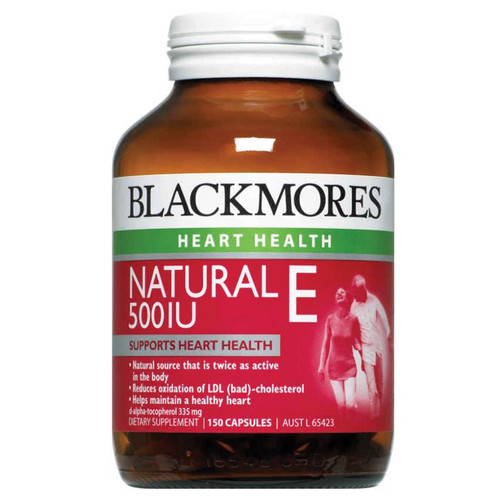Vitamin E is a fat-soluble antioxidant vitamin that helps protect cell membranes from damage. It is incorporated into the cell membranes and helps maintain their integrity throughout the body.
As an antioxidant vitamin E acts as a ‘free-radical scavenger'. Free radicals are common in the body, arising through a variety of mechanisms. Some are generated in the body as part of normal energy-producing processes, some are generated by pollutants such as air pollution, and some are generated by lifestyle factors such as cigarette smoke. Many of these free radicals are dealt with by the body's own antioxidant defences. Some free radicals escape these defences, and tend to accumulate. Research suggests that this accumulation of free radicals can result in cellular damage.
Vitamin E helps maintain heart health as it can help to protect artery walls from free radical damage. A damaged artery wall is more susceptible to developing plaques, which are raised patches on the normally thin and elastic inner wall of the artery. These plaques are composed of a number of substances which include oxidised LDL-cholesterol. Large plaques in arteries can end up obstructing blood circulation.
Fats and cholesterol are very susceptible to free radical damage. Vitamin E helps protect fat and cholesterol, particularly LDL-cholesterol, from oxidation. It is currently understood that LDL-cholesterol is only harmful to the body after it has become oxidised.

 100% Natural
100% Natural  The very Best Quality
The very Best Quality  Get Help With
Get Help With  Fast AU Shipping
Fast AU Shipping 





